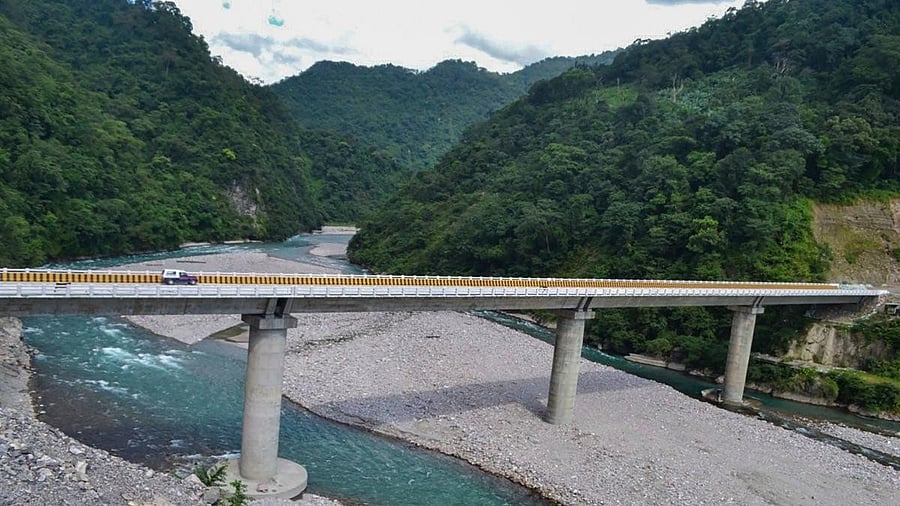
Pema Khandu on Friday said the neighbouring country's control over timing and volume of water would have serious impact on livelihoods in the downstream areas in Arunachal, Assam and Bangladesh.
Credit: PTI photo
Guwahati: Raising an alarm over China's approval for the world's biggest dam on the Yarlung Tsangpo river in the upper reaches in Tibet, Arunachal Pradesh Chief Minister Pema Khandu on Friday said the neighbouring country's control over timing and volume of water would have serious impact on livelihoods in the downstream areas in Arunachal, Assam and Bangladesh.
Khandu said the Siang or the Brahmaputra rivers, as the Yarlung Tsangpo is called in India, would dry up during the winter while sudden and excess water release during the monsoon could wreak havoc by flooding the downstream areas.
“China’s construction of the world’s largest hydropower dam on the Yarlung Tsangpo river poses significant risks to the water security, ecology, and livelihoods of millions of people downstream in Arunachal Pradesh, Assam, and Bangladesh.
"The potential disruption of water flow, flooding, and ecosystem degradation could have far-reaching consequences on us,” Khandu said while addressing a seminar, ‘Environment and Security’ at the Dorjee Khandu Auditorium Hall of the state Legislative Assembly at Itanagar.
Tibet Support Group of Arunachal Pradesh and the Core Group for Tibetan Cause organised the seminar.
CM stated that the dam would allow China to control the timing and volume of water flowing downstream, which could have devastating effects during periods of low flow or drought. The mighty Siang or the Brahmaputra river would dry-up during winters disrupting life in the Siang belt and the plains of Assam, he cautioned.
Conversely, Khandu said sudden releases of water from the dam could cause severe flooding downstream, particularly during monsoon seasons, displacing communities, destroying crops, and damaging infrastructure. "Furthermore, the dam would alter the sediment flow, affecting agricultural lands that rely on the river’s natural replenishment of nutrients."
Stating that all major rivers of India originate from the Tibetan Plateau, Khandu said that the Chinese government’s "rampant" exploitation of Tibet’s natural resources pose a serious threat to the very existence of these river systems, upon which millions of Indians depend for survival.
“Tibet is often referred to as the Water Tower of Asia, supplying water to over a billion people in the region. Its environmental health is critical not only to China and India but to much of Asia. Therefore, India, given its direct dependency on Tibet’s rivers and climate patterns, has a significant role to play in global environmental conservation efforts,” Khandu said.
He expressed concern over China's refusal to enter into binding international water treaties and its selective sharing of hydrological data, while suggesting an urgent need for cooperative governance of shared water resources in Asia.